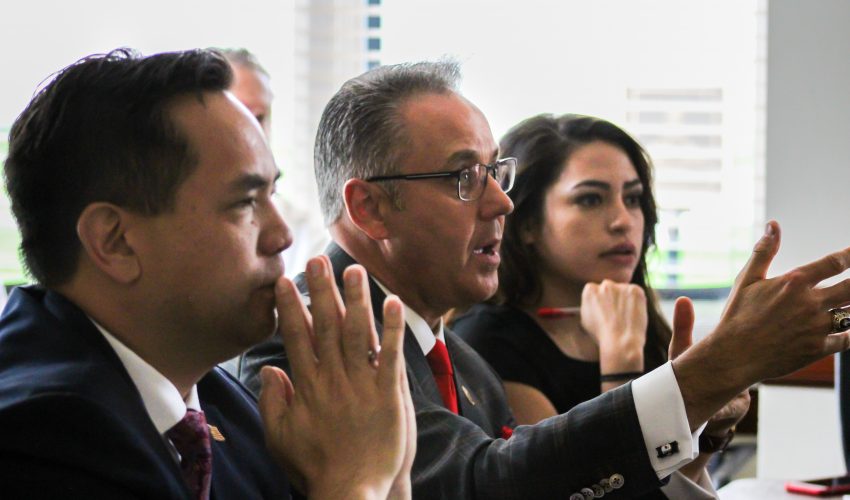June 26, 2019
This week, the Utah Opioid Task Force convened for their quarterly meeting to discuss the opioid crisis in Utah and consider new programs and resources.
Suicide & Opioid Addiction
Cathy Bledsoe from Hope4Utah presented to the Opioid Task Force on Hope Squads, a peer suicide prevention program. Hope Squads are made up of students elected for their kindness. These students are trained by professionals to watch for at-risk students and identify warning signs, provide friendship, and seek help from adults. The Hope Squad model was created in the late 90s by Greg Hudnall, a principal in the Provo School District who realized that too many lives were being lost and peers were an important tool in solving the problem. Data from the Provo School District has shown that these Hope Squads are invaluable in preventing suicide and that since their creation, student suicides have gone down. There are now 207 schools in Utah participating in the Hope Squad program, with new schools joining in all the time.
“Suicide is important to hear and talk about when fighting the opioid crisis,” said Utah Attorney General Sean D. Reyes. “It’s reaching the root of the problem – that people are in pain and trying to get rid of that pain.”
Along with programs like SafeUT, Hope Squads provide support and resources to students in Utah. Suicide is one of the leading causes of death in youths ages 10-19. Utah alone is ranked 5th in the nation for suicide rates.
The Effect of Opioids on Children
Carrie Jensen from the CJC Program and Allison Smith from RIC-AAU urged the importance of understanding the effect that opioids have on children. When their parents are suffering from addiction, children are at a higher risk for having emotional, cognitive, and behavioral problems. Additionally, Jensen and Smith discussed the effects that tobacco can have on children. One particularly worrisome issue is that vape cartridges can be laced with other drugs such as Fentanyl that can have detrimental effects from addiction to death.
U of U Emergency Opioid Use Disorder Program
Peter Taillac, a Clinical Professor of Emergency Medicine with the University of Utah, and Paula Cook, an Assistant Clinical Professor of Addiction Medicine with the University of Utah, presented on the recovery programs provided by the University Neuropsychiatric Institute (UNI). They explained that addiction is a chronic illness and needs to be treated this way. Currently, when opioid users end up in the emergency department due to overdose or a willingness to get treatment, doctors give them resources and a referral to treatment, which users rarely follow up on. However, this new model proposes that emergency room doctors provide opioid addicts with a prescription for Buprenorphine, a medication that is used to wean users off of opioids, and schedules a follow-up for the user to meet with counselors at UNI. Users are also paired up with peer support coaches who have successfully overcome addiction and are given a case manager. UNI then provides treatment for free to the user for thirty days, after which they contact a community partner to provide housing and other resources for recovering addicts. Compared to the current practice, this model drastically reduces opioid usage of addicts and increases the number of addicts who continue long-term treatment compared. While this service is currently only available at the University Hospital, Professors Taillac and Cook are working with other medical centers to help them adopt the model.
Best of State – Public Works
This year, the Utah Opioid Task Force was honored to be the recipient of the 2018 Best of State Public Works Award. The Best of State Awards recognize outstanding individuals, organizations and businesses in Utah. More than 100 judges review the nominations and determine the winners based on achievement in the field of endeavor, innovation or creativity in approaches, techniques, methods or processes, and contribution to the quality of life in Utah.
The Utah Opioid Task Force is dedicated to combatting the opioid epidemic in Utah and works in collaboration with groups nationally and across the state to address the effects of opioid addiction. You can help combat the opioid crisis by steering clear of opioids, getting rid of unused meds, reaching out if you or someone you know is suffering from opioid addiction, learning to recognize an overdose, and learning how to use a Naloxone kit. Learn more here.

